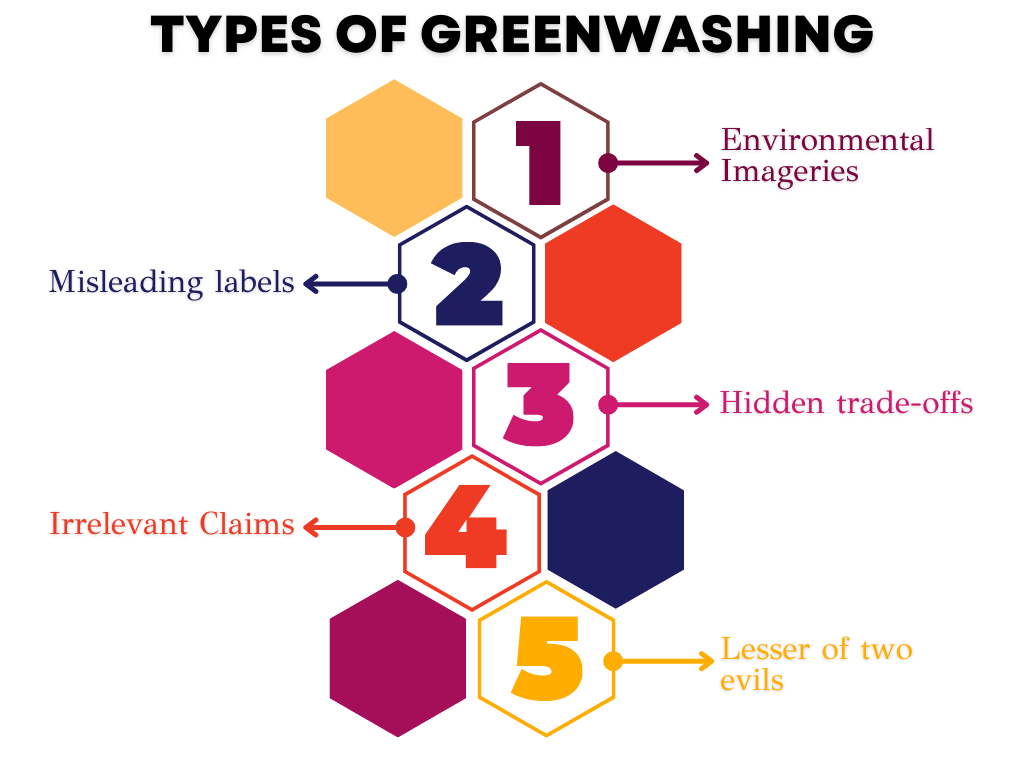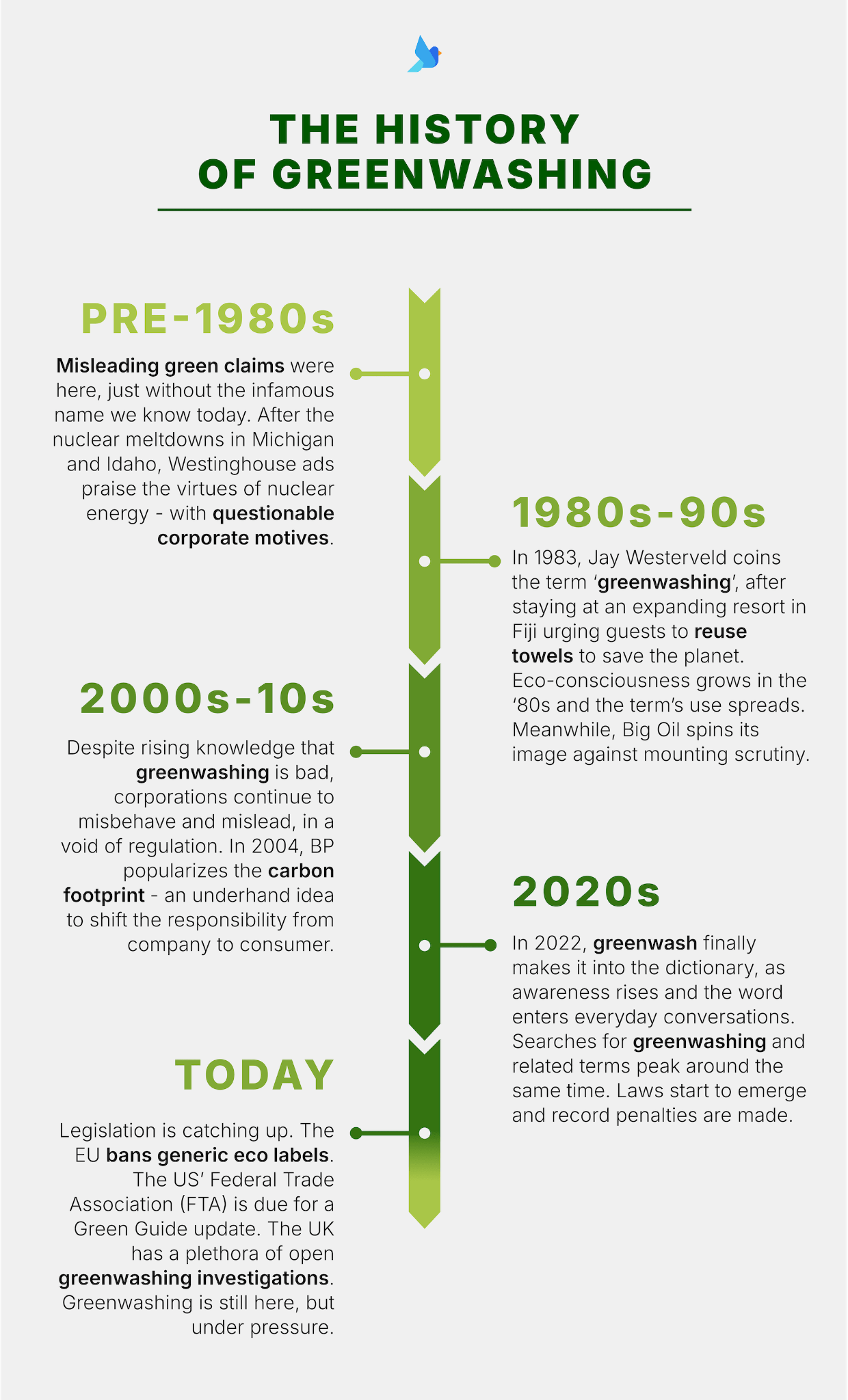Biodiversity & Environment
Guidelines to Combat Greenwashing
- 18 Oct 2024
- 9 min read
For Prelims: Greenwashing, Central Consumer Protection Authority (CCPA), Greenhouse gas emissions, Environmental Impact Assessments (EIA), Extended Producer Responsibility (EPR), EU, Greenwashing Guidelines, COP27
For Mains: Consumer Protection and Environmental Claims, Corporate Accountability and Greenwashing, Global Environmental Governance, Challenges in Combating Greenwashing, Environmental Ethics and Sustainable Development
Why in News?
Recently, the Central Consumer Protection Authority (CCPA) released guidelines to regulate greenwashing and misleading environmental claims. This initiative seeks to ensure transparency and consumer trust in eco-friendly marketing practices.
Central Consumer Protection Authority (CCPA)
- CCPA is the regulatory body established under Section 10 of the Consumer Protection Act (CPA), 2019, it regulates matters related to consumer rights violations and unfair trade practices.
- The act empowers the CCPA to prevent false or misleading advertisements and ensure consumer rights are protected.
- It operates under the Ministry of Consumer Affairs, Food and Public Distribution.
What is Greenwashing?
- About:
- The term greenwashing was first used in 1986 by Jay Westerveld, an American environmentalist and researcher.
- Refers to any deceptive or misleading practice involving exaggeration, omission, or false environmental claims.
- Use of misleading symbols, imagery, or language that highlights positive environmental aspects while concealing harmful ones.
- Exclusions: It does not include obvious hyperbole, puffery, or generic colour schemes/images that aren't deceptive.
- Environmental Claims refer to the representations about goods or services, including their components, manufacturing processes, packaging, usage, or disposal, that suggest environmentally friendly attributes.
- Examples of Greenwashing:
- Volkswagen Scandal: The German car manufacturer was discovered to have manipulated emissions tests for its allegedly eco-friendly diesel vehicles, which constituted an instance of greenwashing.
- Several other multinational corporations, including oil giants like Shell and BP, and Coca Cola have faced accusations of greenwashing.
What are the Key Points From the Greenwashing Guidelines?
- Objective:
- The aim is to combat greenwashing, a practice where companies falsely promote products as environmentally friendly without credible proof, protecting consumers from deceptive marketing tactics.
- Applicability:
- These guidelines target manufacturers, service providers, traders, ad agencies, and endorsers, requiring them to substantiate environmental claims.
- Terms like eco-friendly, green, sustainable, natural, and others must be backed by credible evidence, avoiding vague or misleading descriptions.
- For instance, terms like 100% eco-friendly or zero emissions must be qualified with precise information on the product or service.
- The guidelines do not apply to advertisements or communications that are not specific to a product or service unless they directly or indirectly refer to one.
- Verification & Disclosure:
- Companies must support their environmental claims with independent studies, third-party certifications, or reliable scientific evidence.
- Claims must specify which part of the product (e.g., packaging, manufacturing) is eco-friendly and must be accessible via QR codes, URLs, or clear advertisements.
- Penalties for Misleading Claims:
- Any company found violating these guidelines may face penalties for misleading advertising and unfair trade practices under consumer protection laws.
- Future-oriented claims (e.g., goals to reduce carbon emissions) can only be made if backed by actionable and transparent plans.
- Specific environmental claims like “compostable,” “plastic-free,” “recyclable,” etc., must be supported by scientific evidence or third-party verification, and should be made available for consumer reference.
- Technical Terms:
- To improve consumer understanding, companies are required to explain technical terms like greenhouse gas emissions or Environmental Impact Assessments (EIA) in user-friendly language.
- Central Consumer Protection Authority’s (CCPA) Role:
- The CCPA will oversee the enforcement of these guidelines, working with various stakeholders to ensure compliance, prevent consumer harm, and promote truthful environmental advertising.
What are the Key Factors Driving Greenwashing in India?
- Growing Environmental Awareness: Increasing awareness among Indian consumers about environmental issues has led to a demand for eco-friendly products.
- Companies may exaggerate claims to meet this demand, with consumers willing to pay more for green products.
- Regulatory Pressure: Government regulations like the Extended Producer Responsibility (EPR) policy create pressure on companies to appear environmentally responsible, sometimes leading to false compliance claims.
- Corporate Social Responsibility (CSR): Companies overstating their environmental efforts to meet the mandatory 2% CSR spending requirement under the Companies Act, 2013, is a driver of greenwashing.
- Media and NGO Activism: Media and NGOs uncover greenwashing practices, pushing companies towards greater transparency.
- Investigations reveal deceptive environmental claims, like misleading biodegradability labels.
- Consumer Scepticism: Due to frequent greenwashing, Indian consumers distrust sustainability claims, leading to higher demand for third-party certifications.
Global Initiatives to Combat Greenwashing
- UNFCCC COP27 Declaration: UN Secretary-General calls for zero tolerance for greenwashing, urging corporations to amend their practices.
- EU Green Bond Standards: In October 2023, the EU approved new standards to combat greenwashing, promoting transparency.
- European Green Bond Label: Requires 85% of funds to be directed toward sustainable activities, supporting climate neutrality goals.
What are the Concerns Surrounding Greenwashing?
- Dilution of Climate Goals: Misleading claims undermine the credibility of genuine environmental efforts.
- Unfair Recognition: Entities practising greenwashing may gain undue rewards for irresponsible behavior.
- Market Distortion: Greenwashing creates an uneven market, disadvantaging companies with genuine environmental standards.
- Lack of Regulations: Insufficient standards for environmental claims allow greenwashing to persist unchecked.
- Carbon Credit Integrity: Greenwashing weakens the reliability of carbon credit systems, particularly in unregulated markets.
Way Forward
- Accountability: Companies must be held accountable for their environmental actions and disclose their policies, practices, and challenges.
- Support Green Initiatives: Consumers should back businesses with proven environmental performance and social responsibility.
- Comprehensive Regulations: Implement thorough regulations and standards for environmental claims to enhance transparency and accountability.
Read More: Greenhushing and its Implications.
|
Drishti Mains Question What is greenwashing? Suggest measures to mitigate greenwashing in India. |
UPSC Civil Services Examination, Previous Year Question (PYQ)
Prelims
Q. Which one of the following best describes the term “greenwashing”?
a) Conveying a false impression that a company’s products are eco-friendly and environmentally sound
b) Non-inclusion of ecological/environmental costs in the Annual Financial Statements of a country
c) Ignoring the disastrous ecological consequences while undertaking infrastructure development
d) Making mandatory provisions for environmental costs in a government project/programme
Ans: (a)






